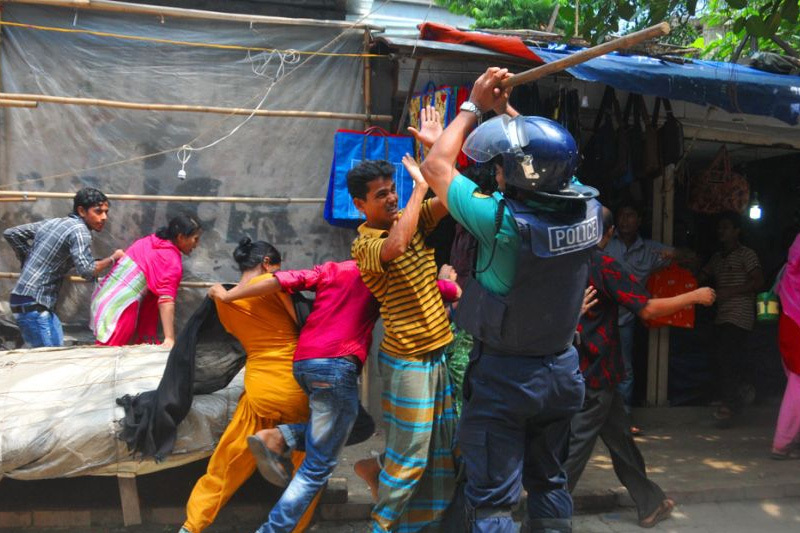
Bangladesh Wage Increase Movement: ‘They Are Trying To Silence Us But We Won’t Back Down’
This small South Asian country remains one of the biggest producers of fast fashion in the world, pumping out millions of tonnes of clothing every year. Popular clothing brands are lured in to Bangladesh, where orders and the labour needed to fulfil them come cheap.
Brands, however, are only required to pay the workers who make their clothes the legal monthly minimum wage, which is one of the lowest in the world. The figure has remained set at $71 since 2018. Talks over a new minimum wage for government workers have sparked protests.
Multiple Fatalities Amid Brutal Crackdown
The mass demonstrations have escalated since the Government of Bangladesh announced a minimum wage increase, from December 1, to $111, far below the $208 a month workers say they need to keep their families from starvation.
Police and factory owners have responded to the protests with threats and violence. Workers at Dekko Knitwears on the outskirts of the capital Dhaka say the men beating them concentrated on their hands and arms. They have been warned not to take part in any more protests.
As demonstrations in Dhaka turned more violent, a couple of garment workers have lost their lives in the brutal crackdown, allegedly after being shot by police in the first wave of protests. And last Wednesday, another woman died after being shot in the head.
Keep Reading
“We Have Nothing To Lose”
Factory owners have threatened to withhold wages by applying a “no work, no pay” rule. Over the weekend, dozens of factories closed “indefinitely” as police issued blanket charges for 18,000 workers. With recruitment paused, it has become difficult for protesters to find work elsewhere.
But despite the violent crackdown on mass demonstrations, the protesters are determined to see the fight through to the end. “We have nothing to lose. If we accept their ridiculous wage proposal, we will starve to death anyway,” said Naima Islam from Columbia Garments.




